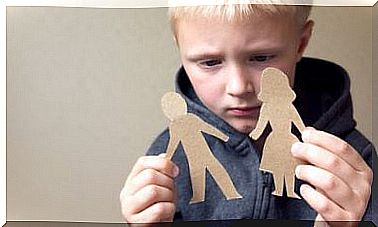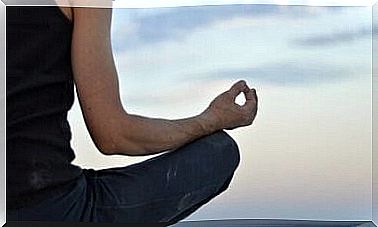Refugee Children: Broken Hearts In Search Of Hope
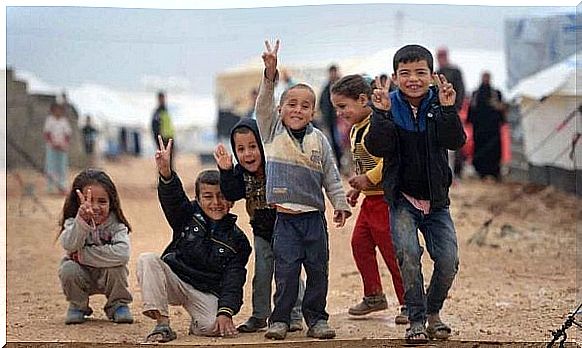
We must not forget that in every child’s brain there is an almost instinctive idea that their parents are able to protect them from harm. When this doesn’t happen, when they lose relatives and the world collapses before their eyes, something breaks in a child’s mind.
Psychological support should therefore be part of that essential humanitarian aid that should be provided to all refugee camps. Adults, but especially young children and teenagers, need mental support to heal those wounds that cannot be seen on the skin, but can remain in their minds and souls forever.
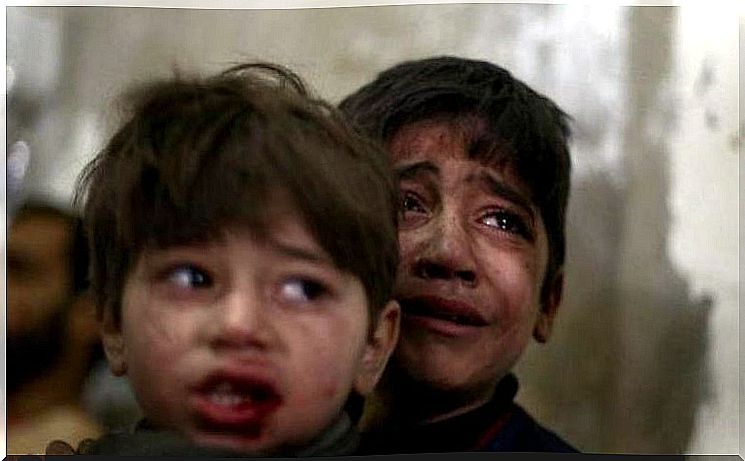
The tragedy of refugee children
Watching the news for a minute is not enough to understand the situation all these children and their families are in. Syrian refugees, for example, carry more weight on their shoulders than just the few possessions they could take with them. They bear the weight of massacres, rapes, bombings, snipers and entire neighborhoods in ruins.
Many of these children leave their country of origin with their families and move towards the Mediterranean Sea. A raft full of people and poor quality life jackets are their only means of reaching that better world. But the sea is treacherous and sometimes adds yet another trauma to their young minds already torn apart.
Child psychology expert Jan Kizilhan said 1 in 5 refugee children suffers from post-traumatic stress disorder (PTSD) and that most of them will be scarred for life by the psychological damage they suffer.
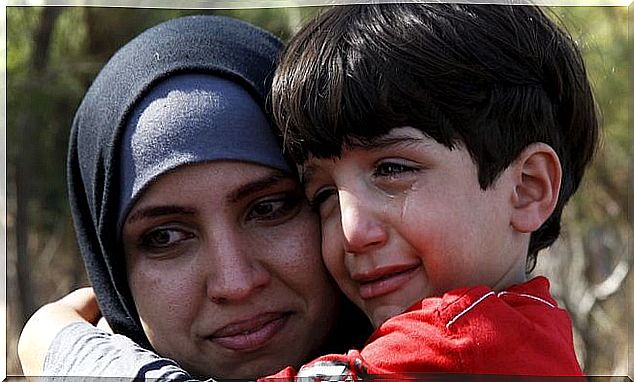
The effect of war and displacement on refugee children
Organizations such as the International Medical Corps conducted some psychological examinations of about 8,000 Syrian refugees who were on the border of Jordan several months ago. The results were as follows:
- 28% of adults were so desperate that they felt almost paralyzed.
- 25% indicated that they did not want to live. The rest said all their strength was drawn from the need to provide their children with a future.
- The children in these refugee camps suffered from migraines, diarrhoea, urinary incontinence and nightmares. These are clear symptoms of severe post-traumatic stress and psychosomatic complaints that their parents did not know how to deal with.
- The clinical picture of refugee children is almost always the same: aloofness, severe sleep disturbances, depression and stress that causes them to experience the traumatic experiences over and over again, to the point that they are no longer able to distinguish between what is and what is. isn’t real.
As we can see, the health of all these people and especially the little ones among them is something beyond the cold and hunger. We are talking about internal injuries that will last into adulthood, forming personalities based on despair; and there is nothing more heartbreaking than a child who no longer knows what a smile is and who cannot look to his future with hope.
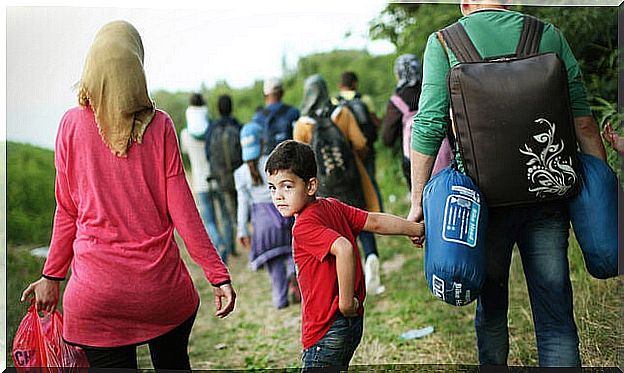
Psychological support for refugee children
Governments and international organizations can take the first step towards a real and feasible solution to this problem. The psychological support that can be made available to a child and his family in the refugee camp will not have enough impact to achieve long-term improvement. It is important that these children are provided with stability, a protected environment, habits and a routine so that they can feel safe.
Something as fundamental as being able to go back to school normally and live a regular life will allow them to let go of their worries. They need to restore their ‘sense of security and control’ over their own lives.
Once these basic needs are met, they should work on their fears, memories, and of course their traumas. Strategies such as drawing can help channel many of the enduring horrific events that linger in their minds.
All children have the capacity to be resilient and with this quality they can overcome the horrors of their past. Through psychotherapy, coupled with the love of their families and a society willing to receive and absorb them, they could certainly be given a second chance.
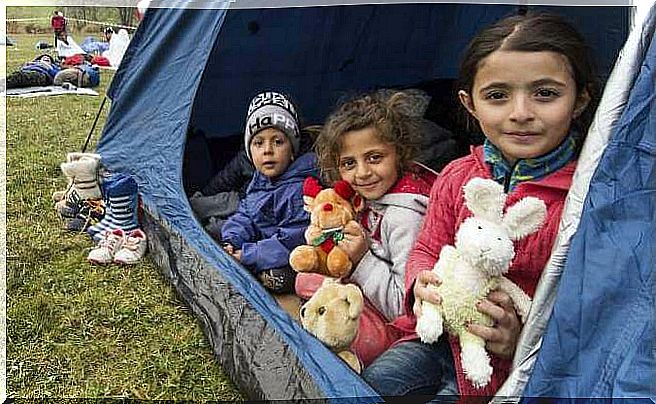
We sincerely hope that the current policy will change and that it will follow a more appropriate path. We hope that governments will be focused on global well-being and not just competitively or fiercely for the well-being of every country, home or individual. Because atrocities have no homeland or flags and because the pain of all those families and their children is a cry that we must not ignore.


